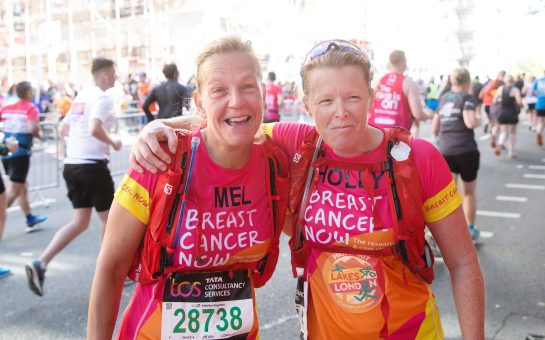Going up just one skirt size in any 10 year period between your mid-20s and mid-50s increases your chances of developing breast cancer by a third, Manchester University researchers revealed.
A large observational study of almost 100,000 women, by Manchester’s Academic Health Science Centre (MAHSC), has found a correlation between expanding waistbands and a 33% rise in the risk of getting breast cancer post-menopause.
Previous breast cancer studies have highlighted the danger of overall weight gain in later life, but this is the first that specifically links a thicker waist to the disease.
Researchers, working with colleagues at University College London, said ‘central obesity’, more commonly known as belly fat, was found to be a bigger risk than generally putting on weight.
And going up two skirt sizes in the same 10 year period was found to double the risk, putting women at a 77% higher threat of developing breast cancer.
The study says: “Although the exact mechanism of these relationships need to be better understood, there is a suggestion that body fat around the waist is more metabolically active than adipose tissue elsewhere.”
Extra fat is known to boost levels of the female hormone oestrogen, on which many breast cancer cells rely.
Three quarters of the women surveyed gained belly fat during their adult lives cautioned the research, which was published in the scientific journal BMJ Open.
Professor Usha Menon of the Department of Women’s Cancer, who led the study, told the BBC: “If skirt size could be confirmed by others as a good predictor of breast cancer risk in older women, this would be a very simple and easy way to monitor weight gain.”
Simon Vincent, assistant director of research at the Breakthrough Breast Cancer charity, said: “We know that 40% of breast cancers could be prevented by changes to lifestyle such as being regularly active and maintaining a healthy weight.
“This study highlights an easy way to monitor your weight gain over time. Women are more likely to remember their skirt size when they were younger than their BMI.”
MAHSC is a partnership, established in 2009, between The University of Manchester and six NHS organisations, uniting leading healthcare providers with academics and researchers.
It has the third highest number of clinical studies recruiting in England, the second highest rate of patient recruitment to clinical trials in the country and holds the title of largest clinical, academic campus in the whole of Europe.
To find out more about MAHSC click here or for more information about Breakthrough Breast Cancer click here.
Image courtesy of Laura Taylor, via Flickr, with thanks



